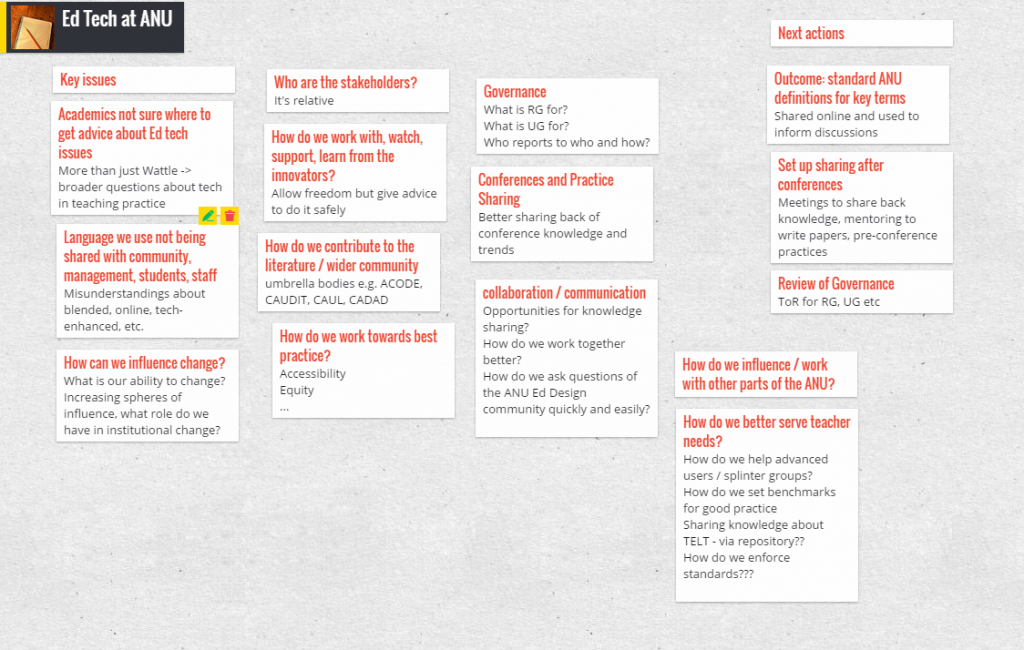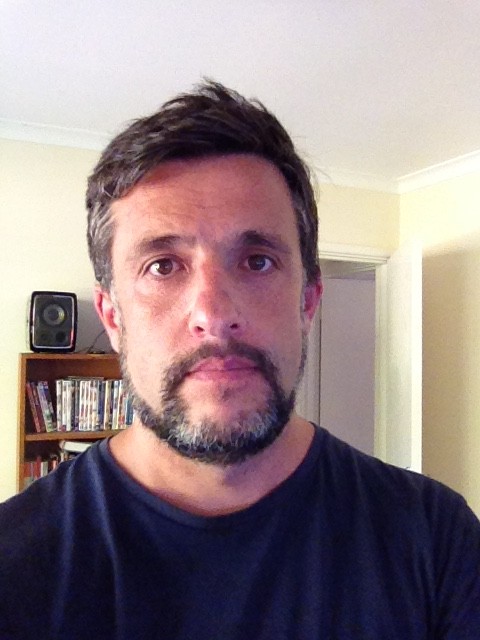Well that’s not entirely true but I have been knocked around a little over the last two weeks with a cold/chest thing and my reading & writing have certainly slipped down the priority list. That’s the sucky thing about being sick – you’d think, great, time at home to just rest up and get stuck into some reading but you really just don’t feel like doing much more than staring and lying down. And coughing, so much coughing.
I have managed to engage in what might be considered productive procrastination – the fiddling around the edges of work and particularly preparation. Working on to-do lists, going to workshops (on searching catalogues and library databases), meeting my supervisor Lina, installing software everywhere that I might use it and clearing out folders (physical and digital).
I even embarked on a large scale but highly relevant project at work to review how we (professional staff – ed designers, learning technologists, IT support people etc) are currently working with Ed Tech at the university and how we might do things better. As you can imagine, this is of crazily large scope (much like my research questions at present) and could so easily be dragged down a thousand side-tracks. Keeping the first meeting focused on what questions we need to be asking (rather than what solutions we can find) proved to be hard work but we got there in the end. One thing about solutions is that everyone loves having ideas but there is often a sense of “someone – not me – should definitely do this brilliant thing that I just thought of”. My focus here is going to have to be on ensuring that action items for any of these things get attached to specific people.
We did make some progress though and came up with some key questions and issues and there was a lot of goodwill in the room.
In many ways, these are the same issues that I’m considering for my thesis. (Did I mention that I’m doing a PhD? I’m starting to feel like I bang on about that a little too much). I’m also starting to feel as though I may be able to dig deeper into the role of educational support staff in higher education, particularly after reading a major report funded by the OLT (Office of Learning and Teaching) which seems to have overlooked us entirely. (I’ll post more about this report soon, as there’s a lot of interest to discuss).
My hope is – in addition to being able to spark a meaningful improvement process at work – that these discussions will help me to focus my research. (And also that my research might help to focus the project – win/win really)
We have flagged the need to look at the language used in this field, which I know full well will be a hellish quagmire but it’s still a discussion that is needed. (If there is one thing that people in academia like, it is a robust discussion about words. See also, being right.) (I tease but only because I know that I’m as guilty as the next person)
It did surprise me though, how much the term “technology enabled learning” grated on me as I read the report – I’ve been using “technology enhanced learning and teaching”. (But really, “enabled”? – as though learners can’t learn without the tech?). We have a ways to go I think.
So I’m doing things but deep down I know that I need to be reading a lot more. And reading better as well – some good advice that I’ve had this week is that I don’t have to read these books cover to cover. I still have a little FOMO there but feel that this will pass.



